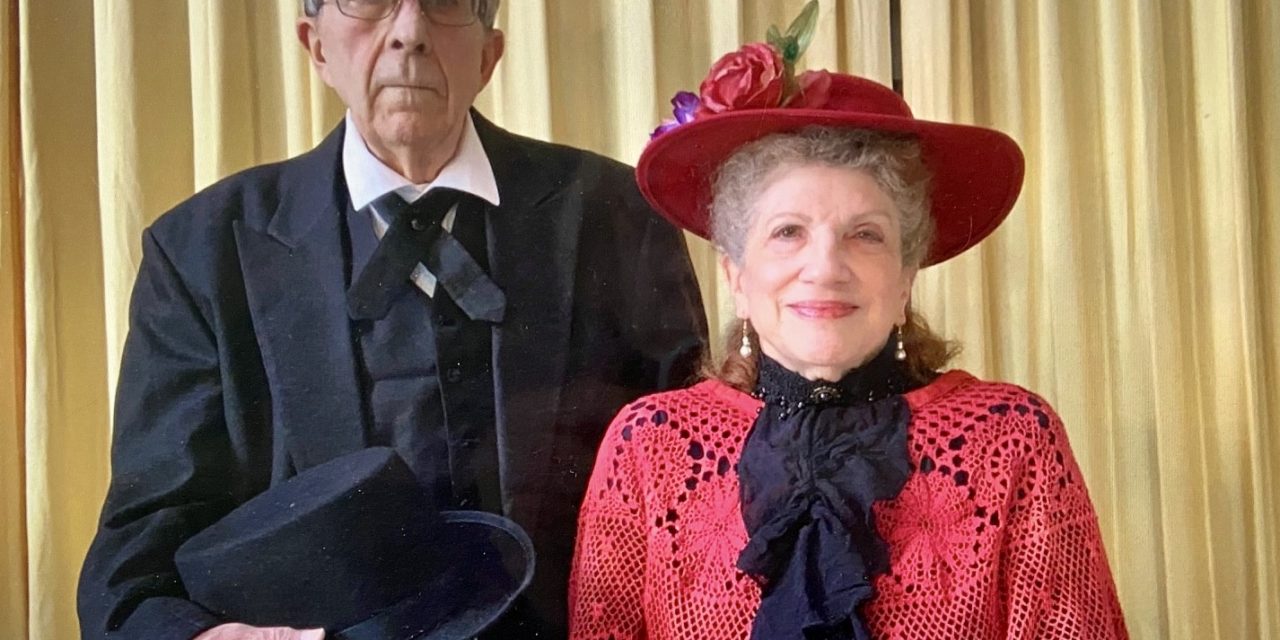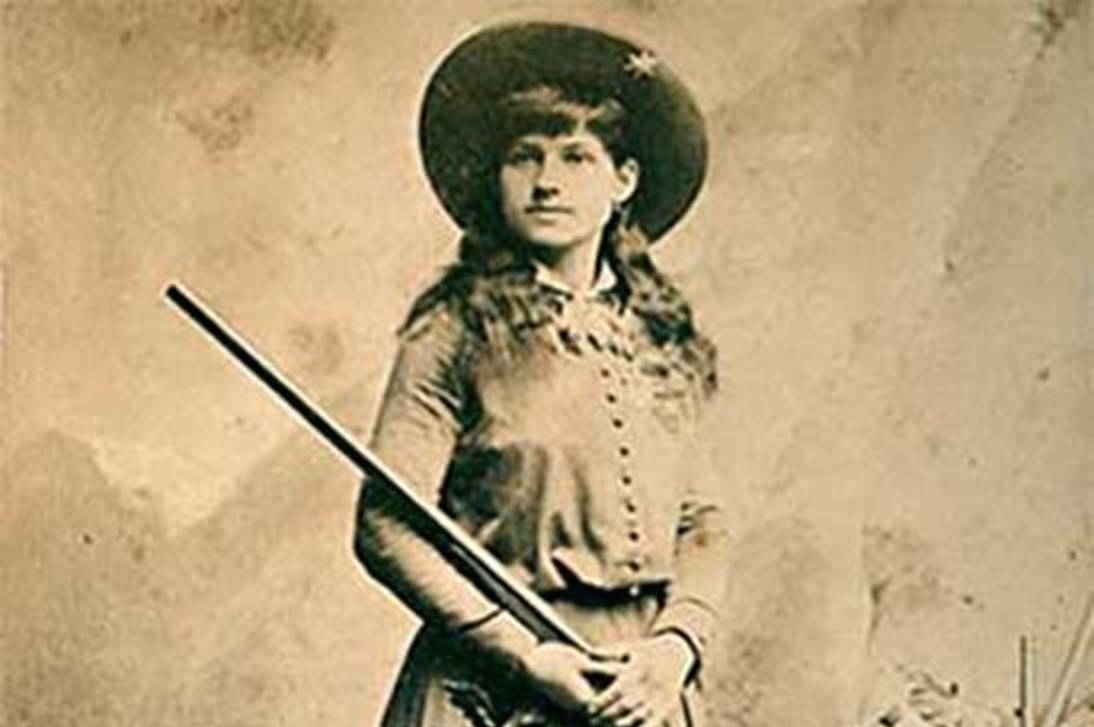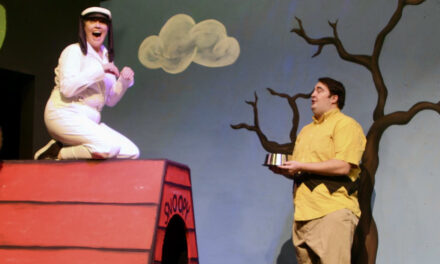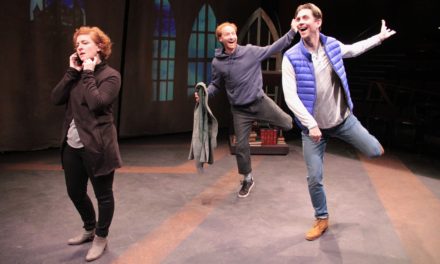(Above: A production of Dorothy Velasco’s 10-minute play, With Her Own Wings, features actors Joe Cronin and Judith “Sparky” Roberts; the play is available to watch online at https://bit.ly/3gykajH.)
By Randi Bjornstad
Toward the end of 2019, longtime playwright Dorothy Velasco started thinking about what she might do in 2020 to mark the 100th anniversary of women winning their long political battle for the right to vote in the United States.
“I thought, ‘Oh, yeah, Abigail Scott Duniway achieved that eight years earlier in Oregon, in 1912,’ ” Velasco said, “and then I learned that even before that she had worked with women in states all around us and they were getting the vote before women in Oregon did. I thought, ‘Now, why was that?’ “
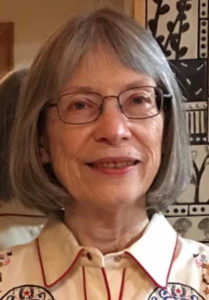
Playwright Dorothy Velasco
Her research into the matter revealed a startling but fascinating reason: Duniway had a formidable foe against her and her fellow suffragists in Oregon, in the form of her own brother, Harvey Scott, the powerful editor of the Oregonian newspaper, which under his leadership was adamantly opposed to rights for women, in particular the right to vote.
“What I hadn’t known before was that he had the power and the desire to squelch what she most wanted to accomplish,” Velasco said. “And I learned that the two of them had a feud that went on for many years. Their feud is well-documented in articles and other publications.”
The Scott children’s mother died of cholera in 1852 on their way to Oregon in a wagon train, followed several weeks later by Willie, the family’s 3-year-old youngest sibling. Just 18 years old herself, Duniway may have resented having to finish raising her younger brother instead of doing what she envisioned for her own life. Apparently, he resented her in turn. The next year, then-Abigail Scott married and began a family of her own.
Fortunately, Duniway wrote a lot about her situation and how hard she had to work to support her family after her husband, Ben Duniway, was severely and permanently injured in an accident involving a runaway team of horses just a few years into their marriage. Basically self-educated, she became the family breadwinner, taking in boarders, teaching school, and running a millinery shop. Between 1854 and 1869, the couple had six children, a daughter followed by five sons.
Harvey Scott, for his part, grew up and went to college, studied law privately with a judge, and passed the bar but never practiced. Instead, he started writing editorials for what then was called the Morning Oregonian, and in 1866 became the newspaper’s editor.
In 1871, Duniway and her family moved to Portland, where they started their own weekly newspaper, New Northwest, which published until 1887 and during those years pitted her editorially against her brother at the Oregonian. He actively opposed her efforts on behalf of women’s suffrage — Susan B. Anthony was an active mentor in Duniway’s efforts — and statewide elections in 1883, 1900, 1908, and 1910 failed to extend women the right to vote.
Perhaps ironically, in 1912, two years after Harvey Scott’s death, Oregon voters adopted women’s suffrage. Duniway died in 1915.
A play in the making
All that was great background for a play, and it fit perfectly into a program called 365 Women a Year: a playwriting project that began in 2014 and of which Velasco already was a participant.
The international program includes more than 300 women playwrights who commit to writing at least one play a year about a woman, as described on its website: “Produce pieces by women and about women! You can search through our herstorical women and also our fabulous playwrights at the top. Check out the ‘About 365’ page if you are interested in getting involved or want to have a 365 festival or play at your theater.”
The project “is just an online collection of plays about women, with the goal of having one per day each year, with the hope that more women will get inspired to do it and maybe even have productions here and there, besides just readings,” Velasco said. “I did a play several years ago about Mildred Bailey, who was a Native American jazz singer raised on a reservation near Spokane. A couple of years ago, The Shedd had a show about her, and it included my little play. The audience was surprised and seemed to really enjoy it.”
The title of the new Velasco play — With Her Own Wings — is a shortened version of Oregon’s state motto, “She flies with her own wings,” which originated with Jesse Quinn Thornton (1810-1888), the sixth Supreme Judge of the Provisional Government of Oregon. The motto appeared on the territorial seal in Latin: Alis Volat Propriis.
The state Legislature changed the motto to The Union in 1957, but 30 years later, led by Oregon Senate historian Cecil Edwards, Secretary of State Barbara Roberts, and former state Senate President Jason Boe, the Oregon Legislature reverted to the original, citing the state’s history out-of-the-box thinking such as instituting the bottle bill, with its financial incentive to encourage re-use of glass bottles , and guaranteeing public access to Pacific Coast beaches.
With Her Own Wings has a cast of three, with actors taking the parts of Abigail Scott Duniway and Harvey Scott, and a narrator named Alma, described in the notes as “a high school student in the present, preferably played by a BIPOC teen.”
The play moves quickly through the years of Duniway’s attempts to achieve women’s suffrage in Oregon and Scott’s efforts to thwart them, in the form of conversations between the two, punctuated by pithy summary statements by the youthful narrator Alma that move the timeline along.
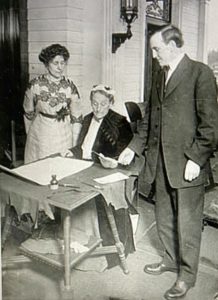
Abigail Scott Duniway signs the Equal Suffrage Proclamation in 1912, with Gov. Oswald West and suffragist Viola Cox looking on; Duniway became the first woman to cast a ballot in Oregon two years later; photo courtesy of the Library of Congress
At one point, Abigail criticizes her brother for not taking his wife’s views seriously, the way her husband does hers. “Henpecked,” Harvey mutters under his breath. When Abigail responds that he doesn’t consider his wife to be smart enough to share serious discussions with, he counters, “Maybe not, but she’s smart enough to support MY ideas. She agrees that women don’t need the vote. Hell, she doesn’t even WANT the vote. She’d have to line up in the pouring rain, and be jostled by drunken men making lewd remarks. No proper lady wants that.”
Abigail tells him he’s just a bully when it comes to discounting his wife’s intellect. “She can hardly consider me a bully when I give her rubies and pearls. And imported silk for her gowns,” he said.
He continues to do his best to stymie Duniway’s suffrage efforts, and until his death he succeeds. Shortly after, in November 1912, when she is 78 years old, her dream comes true.
Her reward was to sign the Equal Suffrage Proclamation on Nov. 30, 1912, with Gov. Oswald West looking on. She also became the first woman in Oregon to cast a ballot, in 1914.
Velasco’s play, With Her Own Wings, can be viewed online at https://bit.ly/3gykajH

